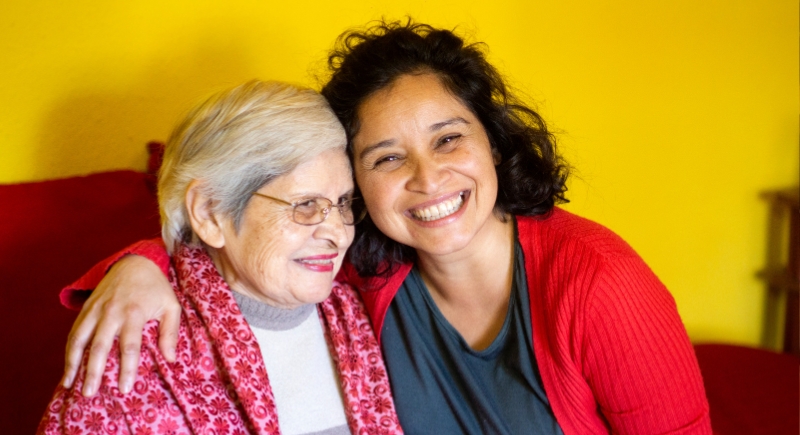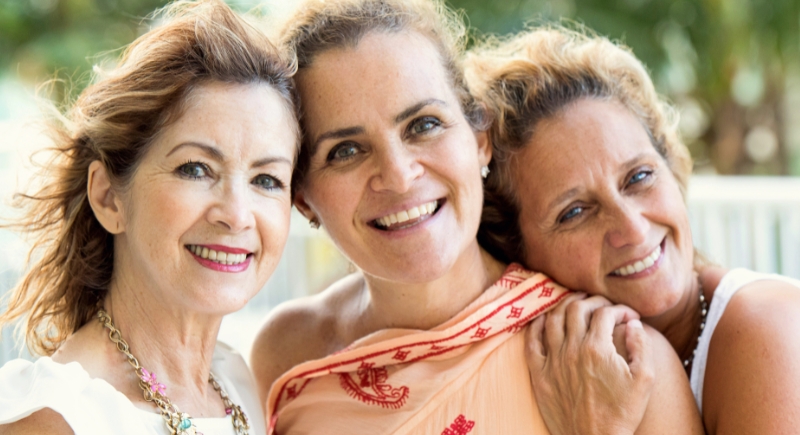The Science Behind Eldest Daughter Syndrome—What You Didn’t Know
If you’re the oldest daughter in your family, chances are you’ve felt more like a second mom than a sibling. You kept things together, held emotions no one noticed, and carried expectations you never signed up for. Psychologists call this the “eldest daughter syndrome.” But it’s more than a mere feeling. It’s rooted in real science, family dynamics, and cultural expectations.
Let’s break down the science, culture, and emotional reality behind why eldest daughters carry so much—and what it means long-term.
No One Said “Be Perfect”—She Just Knew She Had To

Credit: Getty Images
There’s no handbook, but the message still lands: don’t mess up. Firstborn daughters tend to internalize pressure from parents, especially when they’re still figuring out how to parent. It’s constant and deeply formative.
Brainier? Yep—But Not Because of Birth Order Alone

Credit: Getty Images
Studies from the University of Edinburgh and Leipzig University point to one big factor behind why firstborns are generally smarter: attention. Firstborns usually get more one-on-one interaction early in life, which boosts brain development. That extra engagement shows up later in higher cognitive test scores.
Childhood Didn’t Feel Like Childhood for Many

Credit: Getty Images
Before the eldest daughter hits double digits, she’s already managing sibling meltdowns or setting the table without being asked. The BBC reported that eldest daughters often take on care duties that mirror adult responsibilities, which psychologists call “parentification.” And unlike chores, this kind of caregiving shapes identity.
She’s Always Unintentionally Reading the Room

Credit: iStockphoto
Family tension doesn’t sneak past her. Eldest daughters often become emotional stabilizers who smooth things over, notice shifts in tone, and absorb conflict. Constant vigilance like that becomes second nature.
She Was Taught to Excel, Not to Rest

Credit: Getty Images
Academic success, leadership roles, volunteer hours—eldest daughters tend to overperform. The American Psychological Association links this to early responsibilities that reward discipline and structure. But that same conditioning teaches her to equate success with self-worth. Rest feels unearned, and failure feels personal.
Success Often Comes With Baggage She Didn’t Expect

Credit: Getty Images
Eldest daughters get the job, the degree, and the big win. But when they’re far from home or prioritizing themselves, guilt creeps in. In cultures where family responsibility runs deep, especially for girls, breaking away can feel selfish, even when it’s necessary for their own growth.
She Can Manage Everything—Except Asking for Help

Credit: Canva
She’s the fixer that others count on. So when she needs support, she doesn’t know how to ask. Even in crisis, eldest daughters try to stay composed and carry on. A recent Psychology Today survey found eldest daughters often associate needing help with weakness.
The “Good Girl” Reputation Can Feel Like a Trap

Credit: Getty Images
As a kid, many eldest daughters got praised for being quiet and easy to manage. But that praise slowly taught them to suppress needs and avoid conflict. Over time, psychologists say this leads to chronic people-pleasing and a shaky sense of self-worth.
She Didn’t Choose Leadership—It Chose Her

Credit: Getty Images
Harvard research suggests that firstborn daughters often manage people well, but their skill sets grew from duty, not desire. Sure, they’re organized and decisive. But many eldest daughters didn’t aim for leadership. They grew into it because someone had to take charge. Responsibility was never optional.
She Puts Herself Last Out of Habit

Credit: Getty Images
When something needs to get done, the senior daughter does it, even if it costs her sleep or peace. Over time, this becomes default behavior. Mental health experts warn that long-term self-neglect leads to chronic exhaustion and burnout, especially when she doesn’t realize she’s running on empty.
She Becomes the Emotional Project Manager

Credit: Getty Images
When it comes to relationships, the firstborn daughter thinks she’s running the logistics team. Therapists note that eldest daughters often take charge in romantic partnerships by organizing schedules, handling conflict, and managing emotions. Unless the partner steps up, the imbalance builds slowly but surely, and it’s hard to shake.
She Can Rewrite the Script

Credit: Canva
Therapists say it starts with awareness, but healing requires more than insight. Eldest daughters need to unlearn the habits that kept them safe but drained them. That means setting real boundaries, asking for support, and realizing that they’re allowed to rest, even if no one else does.
She Deserves to Be Seen for Who She Is

Credit: Getty Images
People admire the oldest daughters in the family for being reliable and hardworking. That’s fine, but it’s not enough. Experts encourage families to recognize them for more than their output. Her creativity, humor, and individuality deserve the spotlight, too, not just her ability to hold everything together.
She Hides Her Shine Without Even Noticing

Credit: Getty Images
It’s subtle. The eldest girl in the family always tones down her excitement, lets others take the win, and plays small to keep the peace. Somewhere along the way, standing out started to feel selfish. So she fades a bit, claps a little louder for everyone else, and forgets she’s allowed to celebrate herself, too.